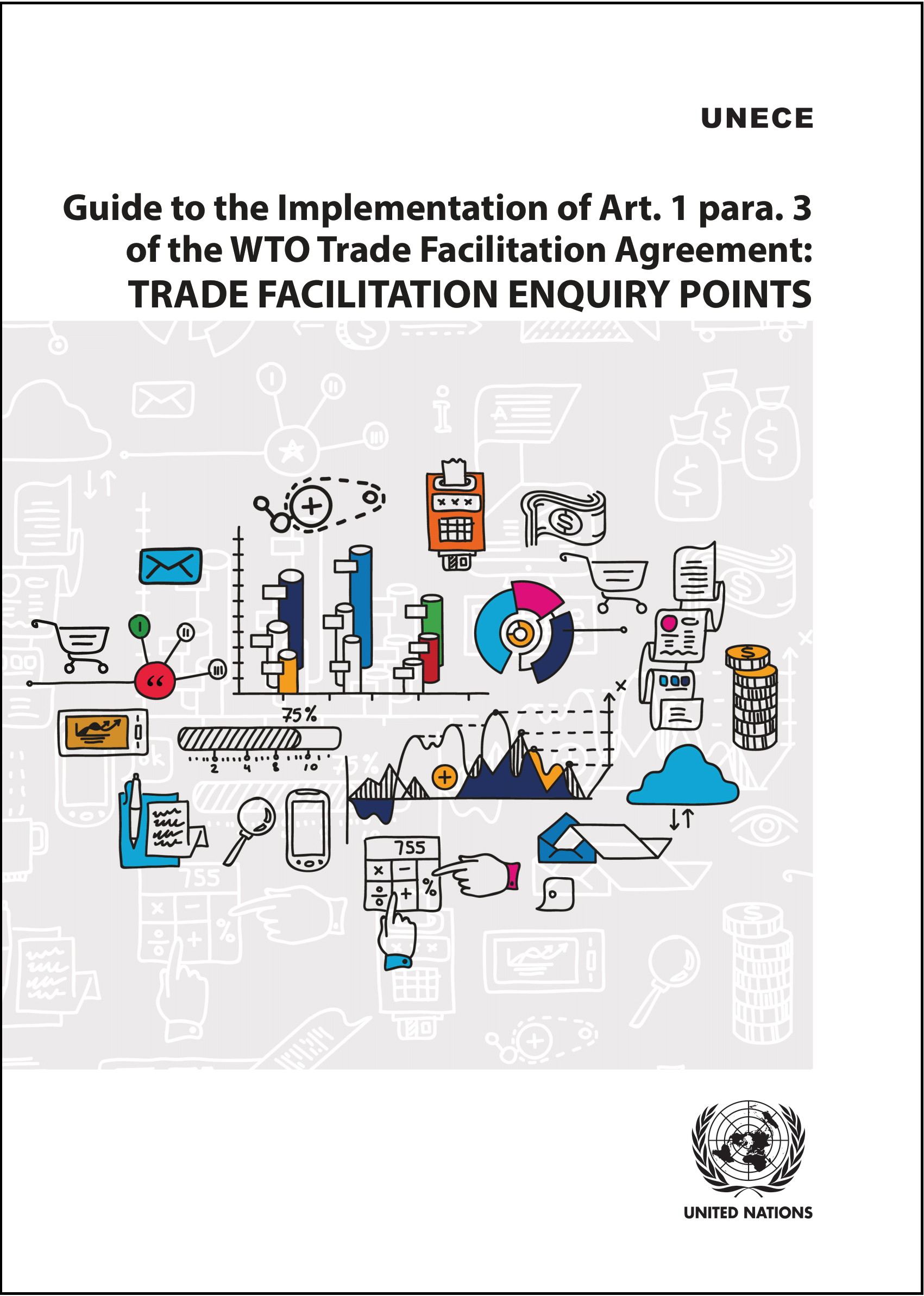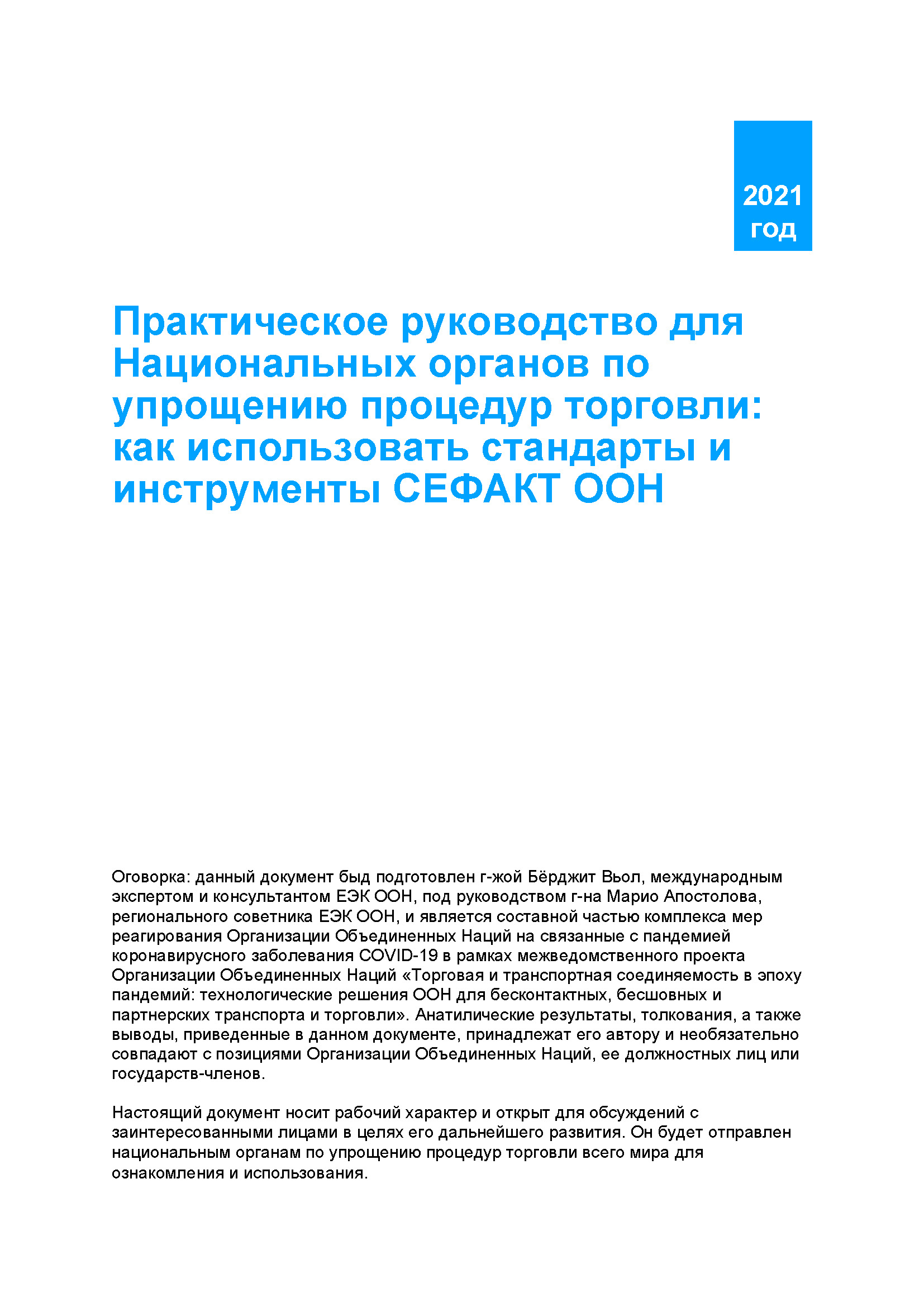UNECE produced a Guide for National Trade Facilitation Bodies on How to Use UN/CEFACT Trade Facilitation Standards and Tools. The objective is to help NTFBs in their response to current and long-term challenges to international trade, using the instruments of the United Nations Centre for Trade Facilitation and Electronic Business (UN/CEFACT). The Guide introduces the concept of NTFBs, their role in raising awareness and implementing UN/CEFACT standards and tools. It highlights the role that NTFBs can play in the review of processes and procedures, document and data harmonization, standardization of electronic information exchange, assisting Single Window implementation projects. It informs NTFBs how they can collaborate with UN/CEFACT on these issues. The plan is to distribute this Guide to the NTFBs worldwide and to organize training events. UNECE is organizing training events on the functioning and regional cooperation of National Trade Facilitation Committees, notably for the countries with economies in transition.
Documents
(EN&RU) Guide to the Implementation of Art. 1 para. 3 of the WTO Trade Facilitation Agreement: Trade Facilitation Enquiry Points
The World Trade Organization (WTO) Trade Facilitation Agreement (TFA) entered into force on 22 February 2017. The United Nations Centre for Trade Facilitation and Electronic Business (UN/CEFACT) defines trade facilitation as “the simplification, harmonization and standardization of the procedures and associated information flows required to move goods and provide related services from seller to buyer such as payments”1. Trade facilitation can help simplify, standardize, harmonize, and modernize international cross-border trade, thereby increasing trade volumes and making international trade faster and cheaper, as well as more accessible for small and medium-sized enterprises (SMEs) and landlocked developing countries. Trade and trade facilitation have the potential to contribute to resilient, inclusive and sustainable recovery after the pandemic.
According to Art.1 of the TFA, WTO members shall promptly publish information related to international trade to enable WTO members (and all interested parties, accordingly) to acquaint each other with their trade rules and ensure transparent and predictable conditions of international trade. WTO members are also encouraged to make available further trade-related information on the Internet and to establish or maintain enquiry points. In compliance with TFA Art. 1.3 these enquiry points should provide the necessary information.

Практическое руководство для Национальных органов по упрощению процедур торговли: как использовать стандарты и инструменты СЕФАКТ ООН
Пандемия коронавирусного заболевания COVID-19 существенно нарушила цепи поставок и дестабилизировала глобальные торговые потоки, а также оказала воздействие на предоставление государственных услуг. В качестве мер экстренного реагирования на чрезвычайные ситуации, правительствами стран были введены упрощенные процедуры как для импорта товаров первой необходимости и предметов медицинского назначения, так и для предоставления государственных услуг, при одновременном сохранении ограничений на контакты между людьми и принятии изменений в процедурах назначения сотрудников. Административные органы по всему миру также ввели временные меры по цифровизации информационного обмена, либо же в целях обеспечения возможности принятия отсканированных или сфотографированных копий документов, проведения проверок соответствия информации электронным образом, а также для снижения частоты проведения физических инспекций грузов и транспортных средств.
